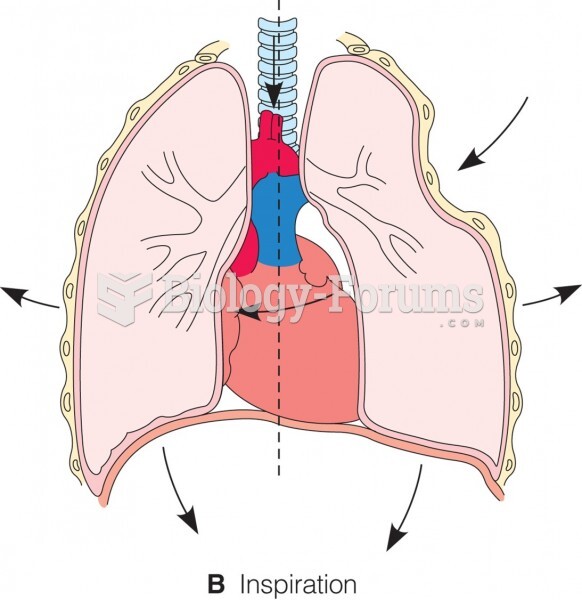|
|
|
In Eastern Europe and Russia, interferon is administered intranasally in varied doses for the common cold and influenza. It is claimed that this treatment can lower the risk of infection by as much as 60–70%.
There are over 65,000 known species of protozoa. About 10,000 species are parasitic.
Persons who overdose with cardiac glycosides have a better chance of overall survival if they can survive the first 24 hours after the overdose.
The FDA recognizes 118 routes of administration.
Blastomycosis is often misdiagnosed, resulting in tragic outcomes. It is caused by a fungus living in moist soil, in wooded areas of the United States and Canada. If inhaled, the fungus can cause mild breathing problems that may worsen and cause serious illness and even death.
 The physician will begin visual inspection of the patient immediately upon entering the examination ...
The physician will begin visual inspection of the patient immediately upon entering the examination ...
 Use friction to mobilize the entire scalp. Place the fingers on the scalp, and move the skin over ...
Use friction to mobilize the entire scalp. Place the fingers on the scalp, and move the skin over ...





